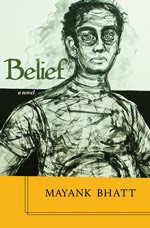 |
| With former Prime Minister Stephen Harper |
The main reason that has led to the downfall of the Conservative Party of Canada is the unbridled (and utterly shameful) persecution of Canada’s Muslims by the party's leadership during the run-up to the federal elections. Harperite politics will go down in Canadian history as a period that will be remembered as a time when the government tried hard to change a vibrant democracy into a closed society
I came to Canada in 2008 with my wife Mahrukh and my son
Che. It was the time when the global recession had kicked in, and the economic
situation in Canada was precarious. We rented an apartment, worked hard, saved
a bit and found our feet in Canada.
As newcomer Canadians, we were all able to emerge from the
crisis largely unscathed because of the policies of fiscal prudence of Prime
Minister Stephan Harper’s government. Soon, I began working with the
Indo-Canada Chamber of Commerce (ICCC) and had the opportunity of pursuing
Harper’s policies from a close quarter.
I admired him for his proactive foreign
policy, especially in promoting trade relations with major economic powers,
both existing (such as the European Union, and China), and emerging (such as
India).
In fact, almost single-handedly, Harper resurrected the
moribund relations between Canada and India, and tried his utmost to fast-track
the comprehensive economic partnership agreement with India. He visited twice
during his nearly decade-long tenure.
As a newcomer, and as a person of Indian origin, it was
difficult for me to not like Harper. And we also had Jason Kenney, the
multicultural minister, the man who was fondly called Jason bhai by all
Indo-Canadians. I found myself, for the first time in my life, looking at
Conservative values from an unbiased perspective, and I actually liked some of
what I saw.
The Harper Conservatives were playing a shrewd game of
appearing to be reasonable on issues important to the people, and at the same
time concealing their true intentions till such time as they were able to
muster a majority in the parliament.
It was then that the true (and ruthless) nature of the
Harper Conservatives emerged into the open. And it was frightening.
The Harper Conservatives saw no need to give freedom to
Canadian scientists; abandoned the long-form census; didn’t believe in changing
– even in a small way – the policies on environment; it was unapologetic over
the inhuman treatment of the indigenous people. Harper Conservatives ignored norms
and manipulated the Senate, turning it into a scandalous cesspool, manipulated the
appointments on the Supreme Court, changed Canada’s traditional role as
peacekeepers to interventionists and combatants.
Surprisingly, Harper didn’t lose his popularity or his
authority, primarily because he continued to steer the economy steadily, making
it possible for common Canadians to enjoy the fruits of Conservative fiscal
discipline.
So, he went into the elections confident of returning to
power. It was in the run-up to the polls that the Harper Conservatives totally misread
the mood of the average Canadian. The vile campaign against the Muslims of
Canada – whether it was the unnecessary controversy over the niqab, or the
dangerous proposal of a neighbourhood watch over barbaric practices, giving
greater powers to the government in the name of curbing terrorism, deporting immigrants
who are citizens after they are deemed terrorists.
Canadians didn’t accept this persecution of a section of
Canada’s population merely because they worshiped a different god. Canadians
proved to the world that they are tolerant, decent human beings who have
internalized multiculturalism. Rising above narrow interpretation of national
ethos, Canadians have rejected the man who had transformed himself from a
fiscal disciplinarian to a diehard chauvinist.
The main reason that has led to the downfall of the Conservative Party of Canada is the unbridled (and utterly shameful) persecution of Canada’s Muslims by the party's leadership during the run-up to the federal elections. Harperite politics will go down in Canadian history as a period that will be remembered as a time when the government tried hard to change a vibrant democracy into a closed society.
 Book fairs and book launches: The annual Canada-wide book
fair The Word on the Street (WOTS) organized every September was held at a
different venue – the Harbourfront Centre instead of the Queen’s Park. Space
constraints at Harbourfront Centre made the fair intimate. There were fewer
booths, or at least it seemed that way, and not enough writers reading.
Book fairs and book launches: The annual Canada-wide book
fair The Word on the Street (WOTS) organized every September was held at a
different venue – the Harbourfront Centre instead of the Queen’s Park. Space
constraints at Harbourfront Centre made the fair intimate. There were fewer
booths, or at least it seemed that way, and not enough writers reading.
 The redoubtable Partha Chatterjee came to Munk Centre early
October, and I took leave from work to attend his lecture on nationalism,
internationalism and cosmopolitanism.
The redoubtable Partha Chatterjee came to Munk Centre early
October, and I took leave from work to attend his lecture on nationalism,
internationalism and cosmopolitanism.  Early this month, I also attended the launch of Jasmine D’Costa’s
non-fiction book. Real Justice: Branded a Baby Killer The Story of TammyMarquardt. The book narrates the story of Tammy a mother who was convicted for
the murder of her two-year-old son based the evidence given by Dr. Charles
Smith, a famous pediatric, who, it was later discovered, had made serious
errors in his assessments, leading to wrongful convictions of many.
Early this month, I also attended the launch of Jasmine D’Costa’s
non-fiction book. Real Justice: Branded a Baby Killer The Story of TammyMarquardt. The book narrates the story of Tammy a mother who was convicted for
the murder of her two-year-old son based the evidence given by Dr. Charles
Smith, a famous pediatric, who, it was later discovered, had made serious
errors in his assessments, leading to wrongful convictions of many. 







